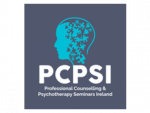Your Hosts


We at PCPSI are delighted to welcome Jan Winhall, MSW, FOT, to deliver two webinars over two weekends in June 2022. Jan is an author, teacher, and psychotherapist who brings an embodied approach to the intersection of trauma and addiction.
Date/Time
3pm – 6pm Irish Standard Time (UTC+1:00) includes a 15-minute break.
Webinar 1 | Saturday 4th June 2021
Webinar 2 | Saturday 11th June 2021
The webinar includes:
- Two * Three hour-long LIVE webinars (6 hours in total)
- Two whitepapers from speaker
- Slide decks from Jan Winhall
- Recording of the webinar (available until 11/09/2022)
- A certificate with 6 CPD points/hours
Overview
Our current model of understanding addiction as a brain disease is failing. Rates are soaring and people are dying in the streets. We desperately need a fresh approach. One that addresses addiction and other trauma responses where they live, in the body. In this workshop we will explore the intersection of trauma and addiction and how to address both with an embodied approach.
The Felt Sense Polyvagal Model™ (FSPM) shifts the current pathologizing paradigm to a strength-based approach. Through the lens of Stephen Porges’ Polyvagal theory, addiction is seen as an adaptive stress response in our autonomic nervous system. Addictive behaviors are the body’s attempt to emotionally regulate by acting as propellers that facilitate neurophysiological shifts in our nervous system. The model integrates Porges Polyvagal theory and Gendlin’s Felt Sense Focusing Oriented Psychotherapy enabling us to appreciate trauma/addictive behaviors as adaptive responses in maladaptive environments. The FSPM provides a generic framework that can support any therapeutic modality.
The webinar series will present an introduction to Jan’s book Treating Trauma and Addiction with the Felt Sense Polyvagal Model. Included is a detailed description of the FSPM theoretical framework, an introduction to The Embodied Assessment and Treatment Tool™ and Carnes Three Circle Practice, a tool for working with addiction. Participants will also learn about Gendlin’s Focusing/Felt Sense practice. A mixture of didactic information, experiential practices, demonstrations, and case examples will guide the clinician in applying the model. This course will be informative for those new to the field of trauma/addiction as well as seasoned practitioners.
Learning objectives
- Describe five concepts in polyvagal theory as they apply to trauma informed embodied psychotherapy.
- Describe the neurophysiological states of the Felt Sense Polyvagal Model™ for treating trauma and addiction.
- Explain trauma and addiction through the lens of Polyvagal theory.
- Name the four avenues into Gendlin’s concept of Felt sense and begin to apply this embodied practice in psychotherapy.
- Explain the Three Circle Practice and how to apply it with clients.
- Describe the Embodied Assessment and Treatment Tool™ and how it differs from the traditional pathologizing model.
- Apply the FSPM™ and Focusing Oriented Strategies in working with different neurophysiological states.
Webinar 1 | Saturday 4th June 2021 | 3pm – 6pm Irish Standard Time (UTC+1:00)
The first webinar will include an introduction to the Felt Sense Polyvagal Model™ including the Client and Clinician version. A description of the five theories that underpin the model will be presented with particular emphasis on Porges polyvagal theory, Lewis learning model of addiction, and Gendlin’s Focusing Oriented Psychotherapy. In teaching participants how to apply the model we will introduce and practice Gendlin’s six steps of Focusing. A series of experiential exercises, and a demonstration, will teach participants how to connect with the Felt Sense, and how to introduce it to clients. Clinicians will learn how to teach clients to identify and map neurophysiological states using the FSPM ™ Specific strategies to facilitate regulation of the nervous system states will be reviewed.
Webinar 2 | Saturday 11th June 2021 | 3pm – 6pm Irish Standard Time (UTC+1:00)
The second webinar will include a description of the Embodied Assessment and Treatment Tool™ detailing each of the eight components that provide concrete tools for working with trauma and addiction. Participants will learn how to formulate an embodied treatment plan that empowers clients in understanding their own behavior and providing concrete action plans for practices that enhance healing and connection. We will do exercises such as Carnes Three Circle Practice to develop a harm reduction plan for treating addiction. A demonstration will be included. Discussion about new treatment models that empower and socially engage clients will be discussed including innovative ways to create communities based on the FSPM™
Biography
Jan Winhall, MSW, FOT is an author, teacher, and psychotherapist in Toronto, Canada. She is author of “Treating Trauma and Addiction with the Felt Sense Polyvagal Model”, by Jan Winhall, Routledge, 2021. Jan is an adjunct lecturer in the Department of Social Work, University of Toronto and Co-Director of Borden Street Clinic, a psychotherapy and teaching centre. Jan is a Coordinator with The International Focusing Institute and Director of Focusing on Borden, a psychotherapy and training center. Jan presents internationally on trauma and addiction.
Further reading: Treating Trauma and Addiction with the Felt Sense Polyvagal Model, by Jan Winhall, Routledge, 2021 to purchase click link below:
Treating Trauma and Addiction with the Felt Sense Polyvagal Model: A B (routledge.com)
Contact
Phone:
087 1091195
